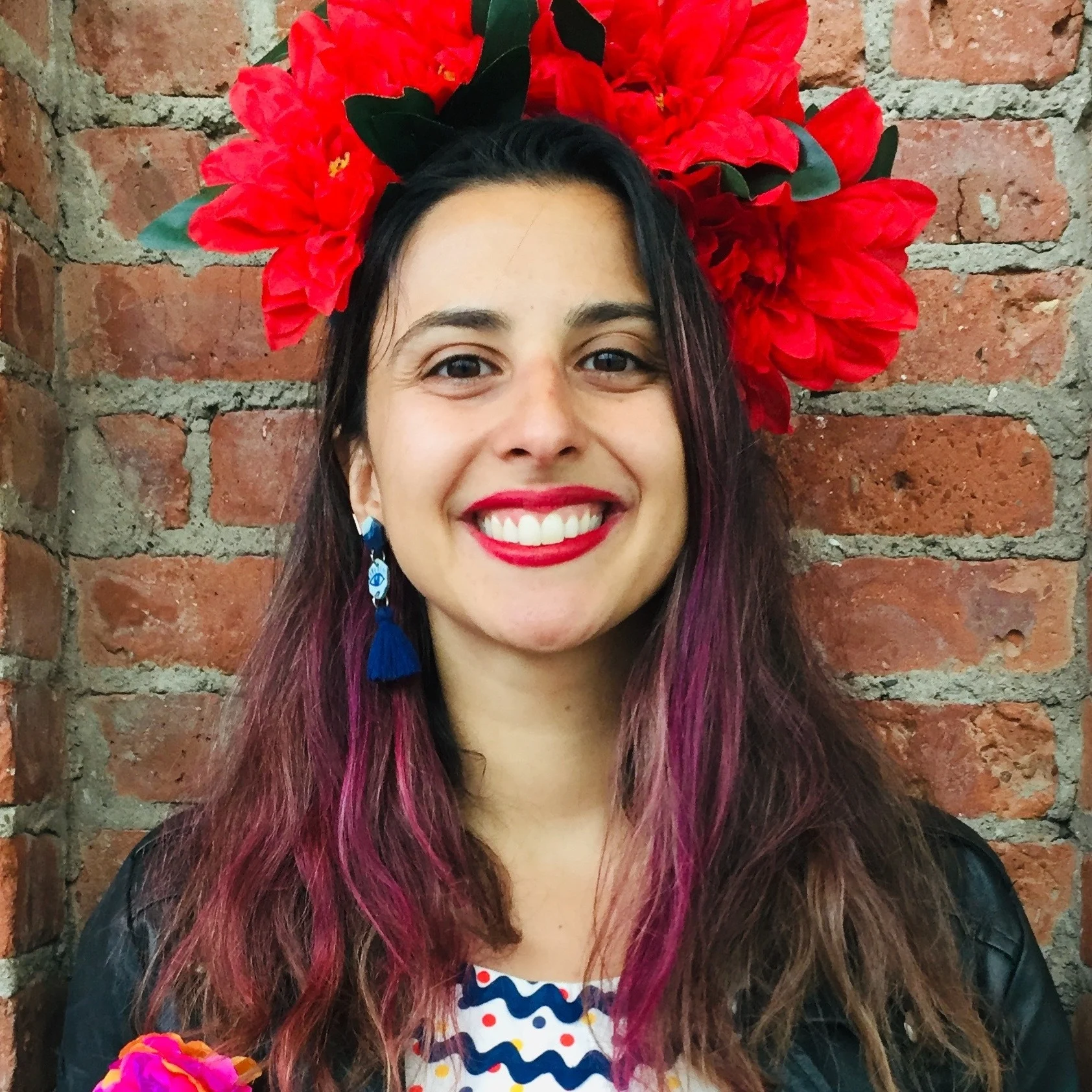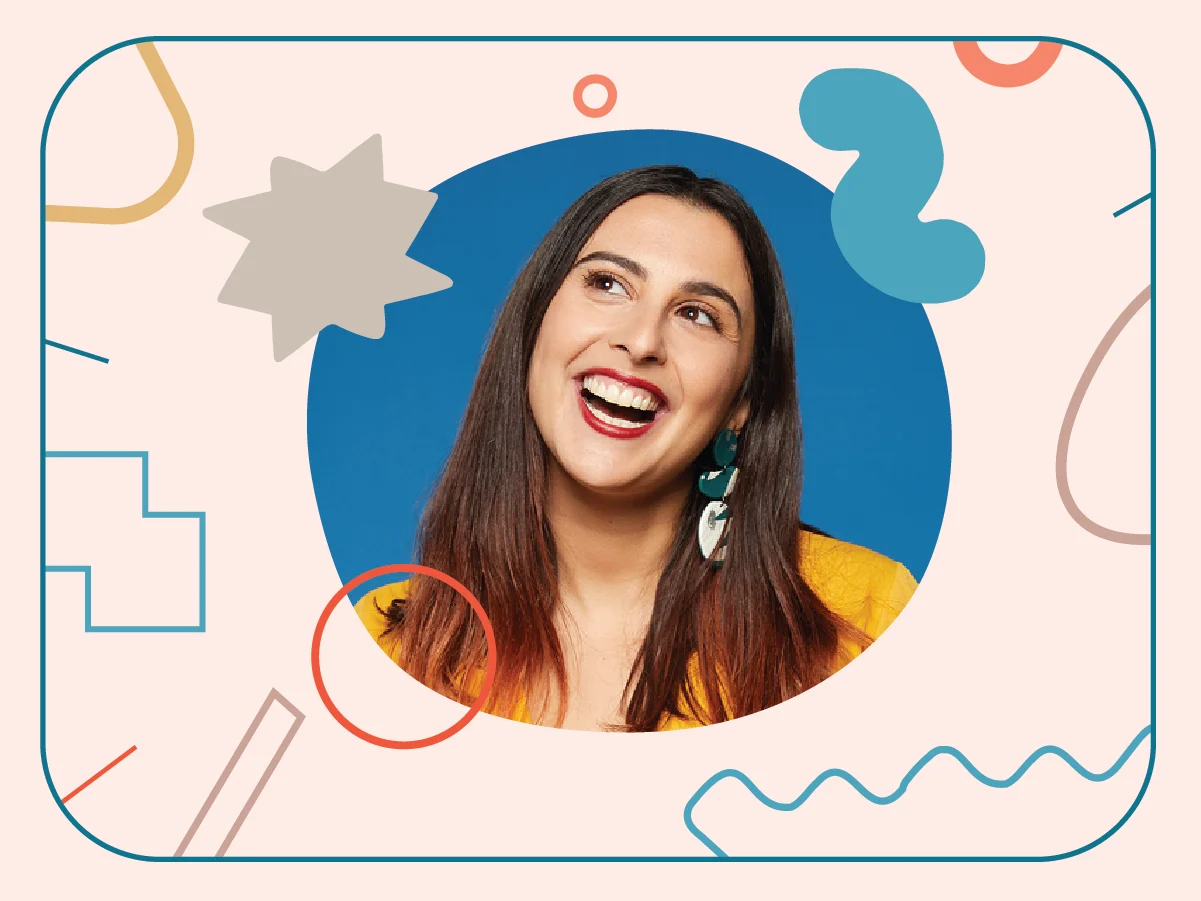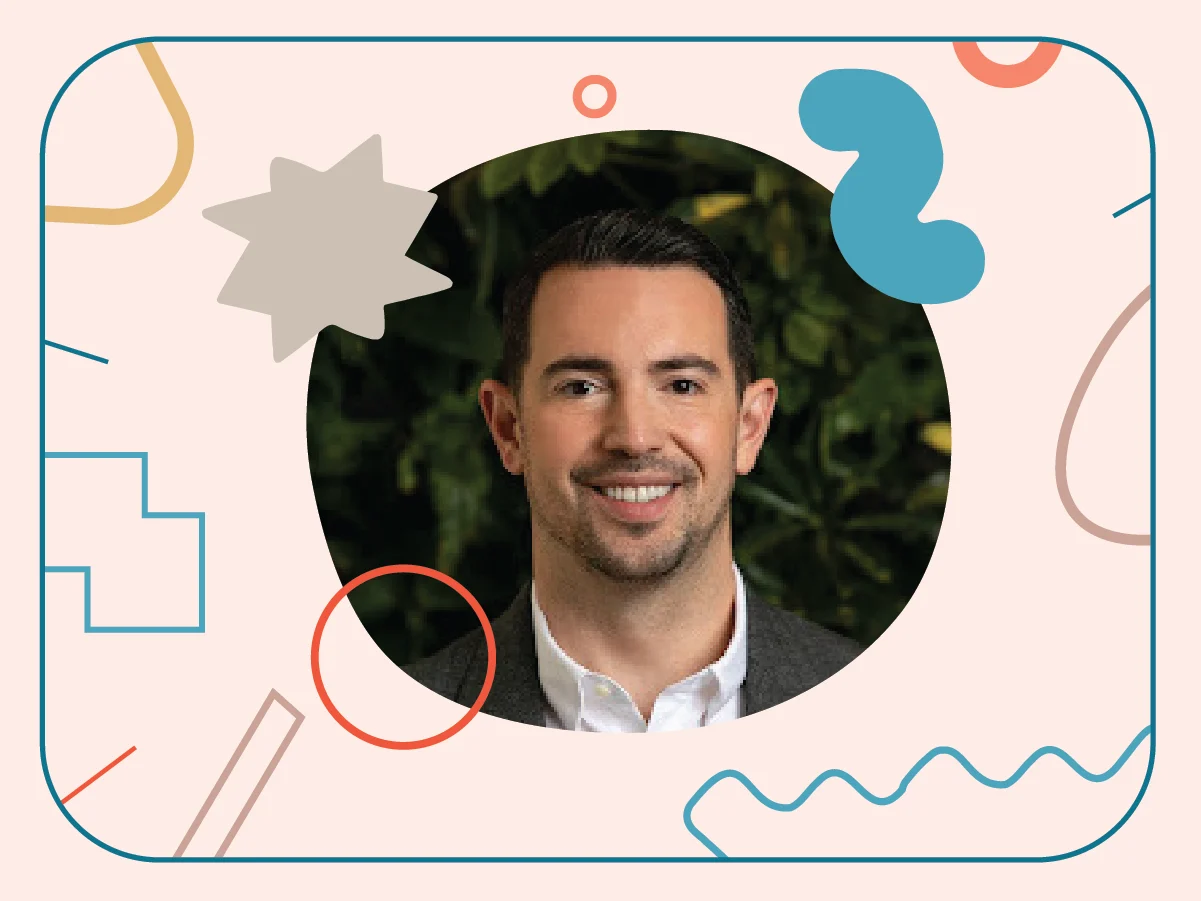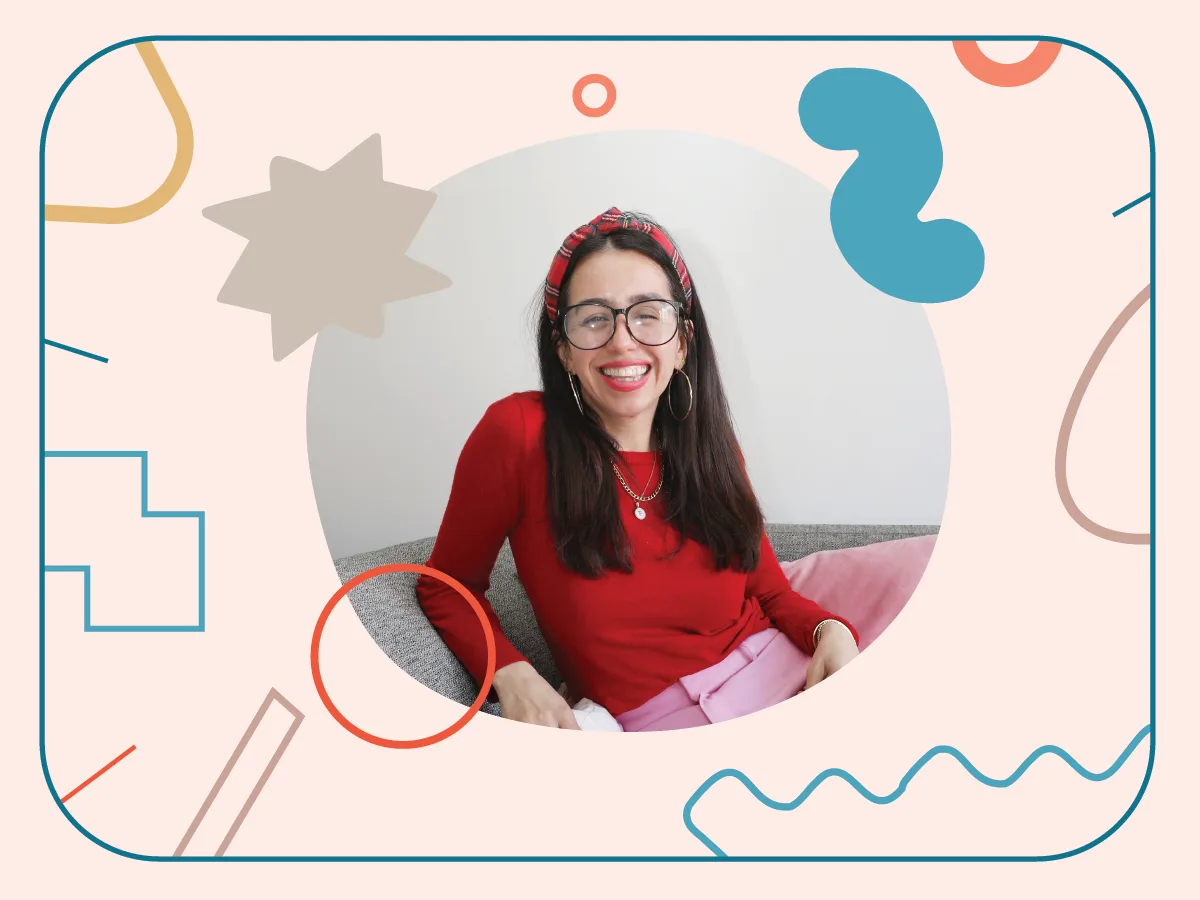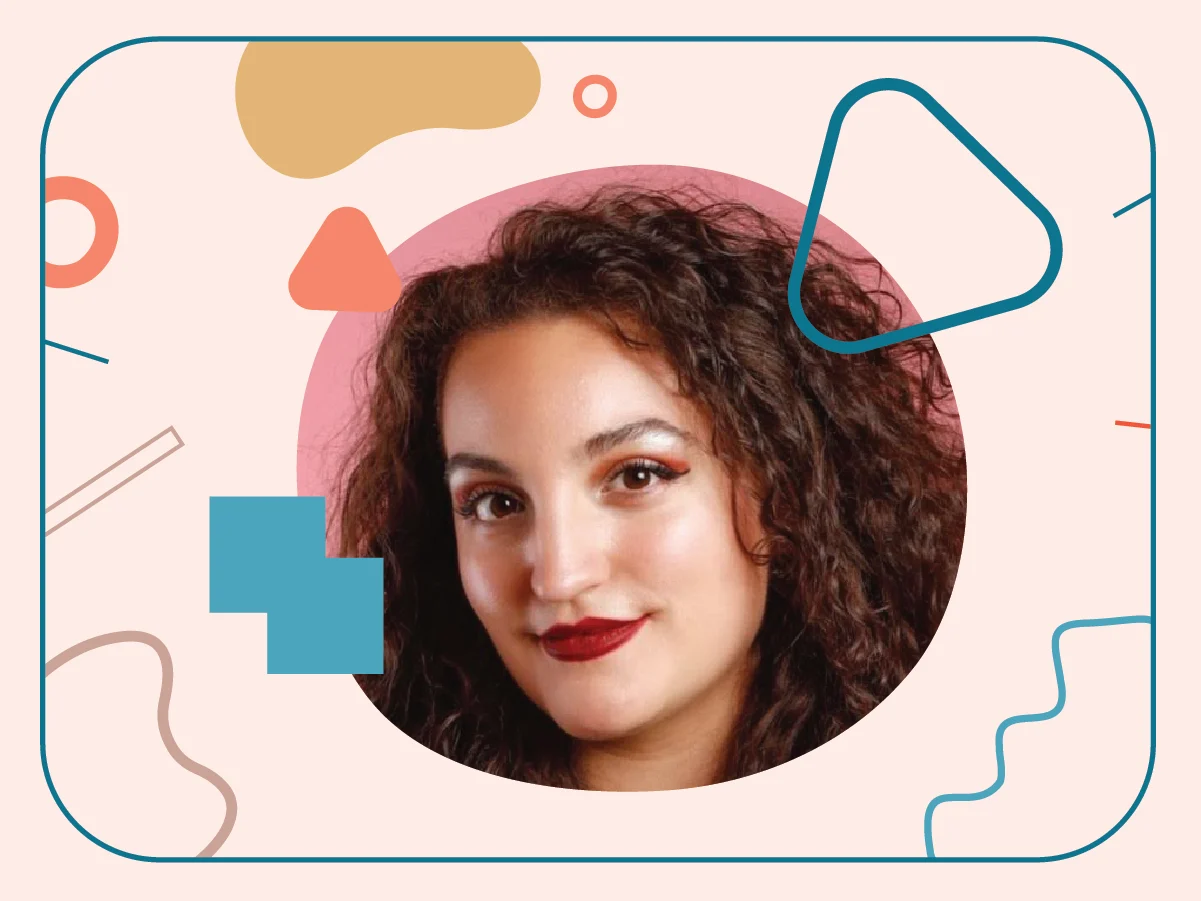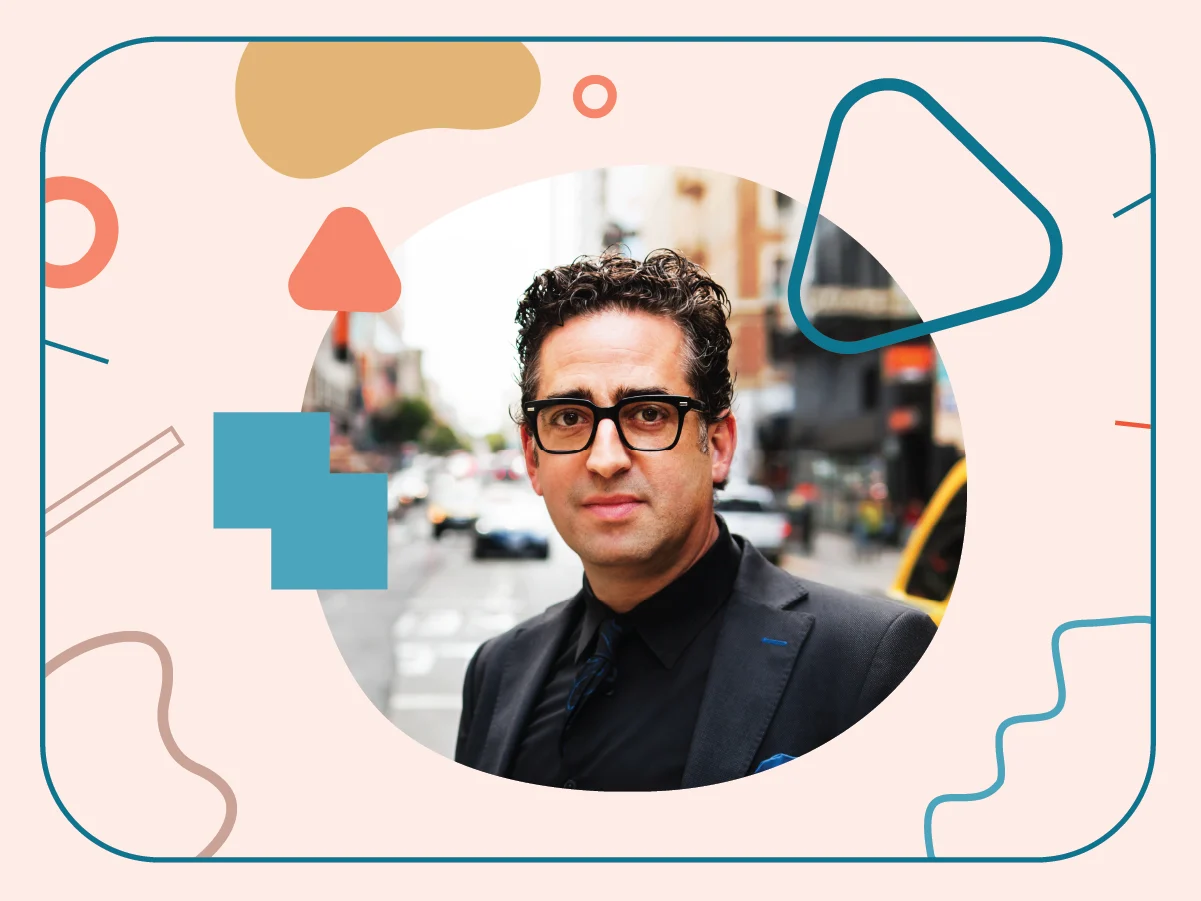Coping with anxiety and dyslexia to become a “Top Chef” competitor

Stay in the know
All our latest podcasts delivered right to your inbox.
Luke Kolpin is a chef with dyslexia. He’s cooked in high-pressure environments, from Top Chef to the critically acclaimed Noma in Copenhagen.
Luke didn’t have the best relationship with school when he was first diagnosed with dyslexia. After high school, he started taking community college courses. But he still wondered what he really wanted to do. That’s when his best friend suggested culinary school. After all, Luke’s nickname was Lunchbox when he was a kid.
Culinary school changed Luke’s world. He excelled in the hands-on work — but he also had to get past the academics. A teacher who recognized his skill set made all the difference.
In this week’s episode of How’d You Get THAT Job?!, Luke shares how he handles challenges that bring up old anxieties — and that asking for help is OK.
Related resources
Episode transcript
Luke: I need to do something where I couldn't just turn around and run backwards if I needed to. I needed to just go forward. So I accepted it. And I went on this last season's "Top Chef."
Eleni: From the Understood Podcast Network, this is "How'd You Get THAT Job?!," a podcast that explores the unique and often unexpected career paths of people with learning and thinking differences. My name is Eleni Matheou, and I'm a user researcher here at Understood. That means I spend a lot of time thinking about how we find jobs we love that reflect how we learn and who we are. I'll be your host.
My next guest has spent his career in kitchens all over the world. Usually chefs are working behind the scenes. So Luke Kolpin never expected to find himself competing in front of a global audience on a recent season of "Top Chef." Before showcasing his culinary skills on TV, Luke worked in one of the most famous restaurants in the world, Noma in Copenhagen, Denmark. Noma has three Michelin stars, and I know a lot of my foodie friends have fought really hard for a reservation there. And he's not satiated yet. He's currently back in his hometown of Seattle, cooking up his next steps.
Luke was diagnosed with dyslexia when he was young, and he talked to me about how his learning difference has shaped his career — from culinary school to thinking about starting his own restaurant. Welcome to the show, Luke.
Luke: Hi. How's it going?
Eleni: So I know you went to culinary school when you were 19. What made you decide to go to culinary school as opposed to, like pursuing, like, I guess, more traditional sorts of education?
Luke: Well, obviously, the normal education route kind of freaks me out a little bit. I mean, not that I couldn't or could not do it. I think everybody can do something if they really, you know, dedicate almost everything to it if they need to. But I was having a very difficult time with school, just, you know, going to community colleges and taking basic AA classes for a business degree or whatever.
And it kind of happened to be one of those conversations I was having with my best friend sitting on the couch when we were 18, both being like, "Are we going to go anywhere? Are we not going to go anywhere? What are we going to do?" And a common thing that happened throughout my whole childhood — and of course, a lot of kids eat when they're bored — and I did that a lot. My friends call me Lunchbox in high school because every chance I got I would open up the refrigerator or eat something or whatever I could. So he kind of just made that suggestion of, "Why don't you try culinary school? All you ever do is eat." So I — that weekend, I actually enrolled in culinary school and completely fell in love with it.
Eleni: Wow. That's a very influential friend that you had.
Luke: Yes. Still my best friend today.
Eleni: Cool. Well, I'd love to hear a little bit more about your learning differences. I know that you were diagnosed with dyslexia. Do you want to talk a little bit about, you know, how old you were when that happened and the story behind that.
Luke: Yeah. So, I think it was around first grade — that's what I believe — my parents told me that I was diagnosed. I don't remember that meeting, of course, but it was around that time. And I, of course, moved around schools at the early '90s. It wasn't necessarily the easiest transition, I think, for anybody with learning disabilities at that time. You know, being in a class where no one knows how to treat or knows what to do with you. So to be honest, I'd read into a cassette tape and then they'd play it back to you and say "Fix it." That was, you know, in second and third grade. So instead of helpful, it was the complete opposite. I just wanted to be kind of, you know, go underneath a rock, you could say.
But of course, I had very caring parents that really helped me out in that sense and always pushed for, you know, a better school or whatever. And I did actually end up going to a school called Hamlin Robinson that everybody has some form of learning disability. I remember on the first day that I was there, you know, holding up my textbook and having a mirror in our desk. So I was able to read my textbook for the first time perfectly. And then, of course, they figure out where on the spectrum you are in your learning disabilities and then kind of teach you going forward from there.
Eleni: Yeah. And it sounds like it made a big difference being around other kids that were similar to you and like normalizing those challenges.
Luke: Absolutely.
Eleni: And how did you go from being in that environment where, you know, you all were quite similar into culinary school, you know, where I imagine that that wasn't necessarily the case. Like people came from like all sorts of different backgrounds. Like, how is that different?
Luke: It was, well, getting to the culinary school part. There was about a decade in between that was very challenging. You know, of course, I hid from certain things. I didn't always push myself or apply. You know, I ran into corners and all these sort of things up until I got to culinary school. But then, of course, going into culinary school, I didn't think about, you know, the other things at that point, because I thought I had found something that I really enjoyed. And I actually happened to have a really, well, now he's a close friend, but we had — I had a mutual friend between me and a bunch of my childhood friends that happened to be in culinary school at the same time. So we ended up, you know, becoming really good friends. And to be honest, he didn't have any learning disabilities, and I did. And we still both kind of struggled in culinary school together. Whether or not that gave me mental stability, that, hey, if people that are not have, you know, dyslexia or learning disabilities can have a problem and I'm keeping up with them, maybe I'm doing something right. I don't know if that's how I thought — I don't think I've told my friend that, maybe I shouldn't.
But at the same time, it was, you know, it was a little difficult, to be honest. I did fail. I almost failed my first quarter class in culinary school through the academic part. I was in the — what I was told was the 98, 99 percentile of the hands-on. But when I came to putting answers down on tests, it was just like high school. It was filled with red marks. The teacher actually graded it in front of you. It was only about 7 to 10 questions. Then he'd hand it back to you. And on the fifth time that I did that, he started questioning me, saying, "Why do you keep putting answers down like this?" And then started asking me all the questions again. A little bit of trauma started probably coming up through me as the line behind me started being filled with about six or seven people. But I gave them the new answers or what I thought were the answers. And he said "These were the best answers I've gotten in the last three years. Why didn't you put it down on paper?" And that's when he kind of learned that I had a learning disability, and he started grading my tests differently and I started doing a lot better in school.
Eleni: Wow. Yeah, I think that really is a testament to like the power of assessing people based on like, you know, the best way that they both learn and then communicate back how they've learned that. I definitely imagine culinary school to be very practical and hands on. So in some ways it's kind of unexpected that there is this academic component. Like, was that also unexpected for you? Like, did you kind of know that's what you were getting into?
Luke: I mean, I knew there was going to be a few things for it, of course. I mean, you're you have to go get a textbook or you're going to give you, you know, tests a few times a year. And then, of course, there's still a math class that I didn't do very well in. But, you know, there's still a math class and it's all the basic stuff. So I knew I would have to deal with it a little bit. But of course, you know, there's ways to not deal with it if you want to just be a cook. But if you want to kind of continue on and really make this your life journey, you're going to have to dive into all that stuff. I mean, anything that makes me uncomfortable as a kid, I'm facing it all over again now. Just, you know, a little bit older and hopefully with a different, you know, weaponry, I guess, of knowledge on it. But, you know, it's still challenging.
Eleni: What are some of those things that come up for you now?
Luke: Well, especially now through a pandemic, you know, having to deal with computer stuff and having to deal with, you know, writing a whole bunch more stuff down and send it off to people. Getting ready to potentially open up a restaurant in the future, you know, you have to deal with all these different numbers that if you're off by one little bit, it's a catastrophic thing.
So, I mean, I know what I'm good at. I know what I can become good at. But I also know what I need help with. And, you know, I want to learn everything about what I do. But I also, you know, will put people in charge that, you know, will focus mainly on that. And we can teach each other all sides of things that we don't know together.
Eleni: Yeah. So it sounds like whenever you're struggling with someone, you bring someone in.
Luke: I mean, there's some things I'll try to do it myself, but I have known in the past that maybe ask somebody. It's OK. Help is OK.
Eleni: Yeah. Have you always been that way?
Luke: No. I would say, to be honest, after becoming a chef and working in Europe is when I really kind of changed that over a little bit. And knowing that help is accepted and help is OK. I mean, when you're growing up with learning disabilities, sometimes asking for help, if you were never able to in the very beginning or thought you were able to in the beginning can, still be damaging now if you've never talked to anybody about it and been able to get over it. So of course. Is it hard from time to time to ask for help? It still is, you know, for certain situations. But I know asking for that help, regardless of the headbutts that might happen, is beneficial for all parties. And leaving it, you know, to be, and burying it and keep burying it — I think a lot of people can become very good at burying things. So, you know, it's time to unburied those.
Eleni: What was it about being in Europe that really, like, influenced that?
Luke: The restaurant itself is called Noma, in Copenhagen, which was pretty acclaimed at the time. And of course, when you're in this industry and you start to fantasize about what you can do, you think of high-end restaurants. And I ended up having an opportunity to potentially do an internship in this restaurant back in 2012. And, you know, I really wanted to have someone to teach you. I knew or thought you really had to have a mentor as a chef. And I really didn't have that at the moment here in Seattle back then.
So I did find an opportunity and of course, was only supposed to be a two-month-long internship. Now, knowing myself and knowing how hard I had, you know, going through school, if I didn't want to read or do anything, I would just turn around and say, no, go hide in my room. And no one would ever say anything or I would cause into a fight or whatever. So I know I needed to really motivate myself in the best way possible to do that. So I kind of told everybody I was going out for a job. It was a job trial, you know. Basically made up a few lies to push myself, because if I didn't go out there and end up getting a job, it would be a catastrophic failure here. And that turned into me pushing really hard and getting the job.
You know, I wasn't as knowledgeable or skillful as everybody else, but as soon as somebody wanted a container from across the room, you bet ya, I'd get that container first. I'd make sure it's dry, and whatever you needed to be set up I'd make sure that that would happen. That attitude turned into a very positive thing there, and they gave me a job after two weeks of me being there.
And of course, what really helped me in this restaurant to kind of one, also have confidence to talk to people and kind of interact and how I do now and why I really dedicate a lot to this restaurant, is the chefs were the ones that engaged the customers or the guests. So we would bring the food out. If you were in charge of making a dish, you would explain it. Now, in the beginning, talking to anybody more than one person I'd be petrified. I'd freak out any sort of question asked to me about anything. I would feel like it was a test question all over again and I'd panic.
But of course, over the time, you know, you're forced into this and you talk to people and all that sort of stuff. So all these things I was really uncomfortable with doing, there was nowhere for me to turn around and go. I was in Denmark, very far away from Seattle, and I really wanted this to really work. So, of course, I slowly got comfortable with, you know, I might have said a few of the same things over and over again, but eventually it became more natural to me. I became like it was my home there, so I felt like I could really talk about it.
And then it didn't matter how many people I was talking to or what I was talking about. I could talk about anything in this for as long as I needed to, as long as I felt comfortable and confident with what I was talking about. And if I didn't, I'd tell you, and then we could learn about it. So this restaurant, you know, I forced myself into it by, you know, in a sense, lying about certain things to force myself to try to get the job. And then once it was here, it was of course, it was very difficult. And, you know, you're having to do things that I really didn't want to do, but I wanted to and I did. And I forced myself to to break through the other side of it.
Eleni: So you ended up on "Top Chef"?
Luke: I did.
Eleni: How did that come about?
Luke: I had two friends that were on the previous season, and I also got a phone call from from the "Top Chef" producers. I thought I was waiting for this phone call, but I kind of had told my friend that I wouldn't do it. I didn't think I could go on TV and do anything like that. So to be honest, when I got the phone call to do "Top Chef," I told them I needed a few days to think about it. I said yes and went into this situation kind of the same way and mindset that I went into going to Copenhagen and working at restaurant Noma for the first time. I needed to do something where I couldn't just turn around and run backwards if I needed to. I needed to just go forward. So I accepted it and I went on this last season's "Top Chef."
Eleni: So for listeners who haven't watched the show, how would you describe it?
Luke: Well, "Top Chef," I was on Season 19 and they're just about to launch their Season 20. So of course, it's a good amount of time that this competition cooking show has been on. It's a cooking show, but it's all formed around a competition. And my season started with 15 people. And you're tasked with a quickfire challenge that, you know, won't get you kicked off the show, but will potentially get you further with maybe an immunity or something positive out of it. And those are typically 30- to 40-minute challenges. And then afterwards, you either have an individual challenge that could be, you know, 2 to 4 hours, or a team challenge. And, you know, you go through one quickfire and one main challenge before you are potentially eliminated and then maybe or may not go to the next challenge.
Eleni: And how are the individual challenges different to the team challenges?
Luke: Well, the individual challenges are, you know, it's very random. It's very kind of, you know, they give you let's say, for instance, we were tasked with making biscuits from scratch one day. And I would say half of the chefs there have never made a biscuit from scratch. So that you find a lot of things that, you know, you've done for the first time, never done before, and have to now make it in a challenge.
Eleni: And what was the most challenging part for you?
Luke: I mean, it's a competition. So you working in, you know, situations or realities where in, you know, a normal kitchen, you can stop. You don't have to put the plate up or you don't have to do whatever. You might have given yourselves a certain time frame in a restaurant. But, you know, you can adjust that time. When you're on "Top Chef," if you're given 30 minutes or 2 hours, that's what you have, whether it's a realistic or unrealistic time.
Eleni: Speaking of time, you know, I know that like in school, you might have had extra time on, like, certain things.
Luke: Everything I wanted.
Eleni: Like, did you have any similar time accommodations or other accommodations in the competition?
Luke: No. There was a producer actually named Taylor, who I think is amazing. He's a great guy. And he and his sister both have learning disabilities. So it's not like it was like, oh, you have what? Yeah, no, we can't do anything. I mean, there was one challenge that we were given a couple of paragraphs to read and have to research on someone and kind of get inspired by, you know, doing the research. We had 15 minutes to do this. I looked around and said, "You're giving me 15 minutes to read a page and do some research online?" You know, and I was like, "Well, I'm not even going to do the research. I'm just going to try my best to reread this as much as I can and figure something out.".
So that was the first time where I kind of had old feelings come back when I was on the show. And I was given an option to if, you know, if you want to have somebody read this to you or something like that, they were going to do it. And I did say no. And I said I'll figure it out, because I didn't want any extra help for that. But it was provided to me for that challenge if I needed it.
Eleni: Why didn't you want the extra help?
Luke: I don't know. I just, I mean, I did get some inspiration from it, and I got it in a very different way. And, you know, the dish may or may not have come out very well, but that was on my execution, not from where I drew the inspiration from. So I ended up — I did OK.
Eleni: So I know that you mentioned that it wasn't necessarily in your plan to be on TV. It sounded like you were actually going to say no to the opportunity. So now that you've had that experience, has that shifted, you know, your plans for the future and what you're thinking about doing with your career?
Luke: I think one big thing that it did change for me and — I mean, it's not like I want to pursue the largest TV career or whatever — but I think watching myself for the first time, knowing the mistakes that I've made on the show and knowing they were coming. And I mean, I could I could have crawled under a rock and, you know, never came out, you know, after seeing myself on TV. But to be honest, I never would have thought that I enjoyed watching myself. And I think that was the biggest confidence booster that I needed from going on to the show and knowing that I felt great in a situation that I thought I would never feel good in. So I think that is giving me the growth to no matter what it is that I do foward, it might be hard, but I feel I can do it.
Eleni: We had a chef with dyslexia on a previous episode and that really got me thinking. What do you think it is about cooking and dyslexia that's so compatible?
Luke: I mean, I think it depends on the environment, of course. But I mean, in some situations, like in the classroom where it might, you know, look really unorganized, trying to be in one's one spot and, you know, having to look at all these words and things. And I could feel really unorganized and whatever. But when I'm in an environment where I'm in charge of 30 people, I have five tasks that are going. And we also have an end goal for the day. And I need to, "Oh, this isn't working, stop and go here" and organizing this giant orchestra. To me, being able to multitask in what we called an organized chaos felt very comforting. You know, I think maybe having the learning disabilities that I had were maybe giving me a different tool that no one else had to be able to organize myself through that chaos and not feel overwhelmed. I think that could be a big thing.
Eleni: It just doesn't feel like chaos to you.
Luke: I mean, it does, but I enjoy it.
Eleni: What else do you enjoy about cooking?
Luke: I enjoy the feeling that you do get when you when you're finding that new flavor, you're finding that new thing that you weren't good at doing before. It can be stressful, but not only is that end result going to either have you taste something that's very delicious, or you're going to serve it to somebody and you're going to get a reaction out of them that can then fulfill you as well and fulfill them. So I think that, you know, the overall feeling of either helping yourself, helping somebody else out, helping a community through just the act of what you might struggle with throughout the day and have it be such a positive thing to me, I think is great with it.
Eleni: Well, yeah. Thank you so much for talking to me today.
Luke: Thank you very much for letting me be part of this podcast.
Eleni: You've been listening to "How'd You Get THAT Job?!" from the Understood Podcast Network. This show is for you. So we want to make sure you're getting what you need. Email us at thatjob@understood.org with your thoughts about the show. Or maybe you'd like to tell us how you got THAT job. I'd love to hear from you.
If you want to learn more about the topics we covered today, check out our show notes for this episode. We include more resources as well as links to anything we mentioned in the episode. Also, one of our goals at Understood is to help change the workplace so everyone can thrive. Check out what we're up to at u.org/workplace. That's the letter U, dot org, slash workspace. Understood.org is a resource dedicated to helping people who learn and think differently discover their potential and thrive. Learn more at understood.org/mission.
"How'd You Get THAT Job?!" is produced by Grace Tatter. Briana Berry is our production director. Our theme music was written by Justin D. Wright, who also mixes the show. Margie DeSantis provides editorial support. For the Understood Podcast Network, Laura Key is our editorial director, Scott Cocchiere is our creative director, and Seth Melnick is our executive producer. And I'm your host, Eleni Matheou. Thanks again for listening.
Host
Eleni Matheou
leads user research for Understood. She helps Understood to center its work on the lived experiences and voices of people who learn and think differently.
Latest episodes
Tell us what interests you
Stay in the know
All our latest podcasts delivered right to your inbox.
